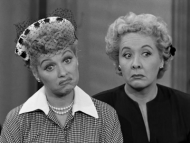What if she has a point?
Steve Siebold, author of "How Rich People Think," spent nearly three decades interviewing millionaires around the world to find out what separates them from everyone else.
It had little to do with money itself, he told Business Insider. It was about their mentality.
"[The middle class] tells people to be happy with what they have," he said. "And on the whole, most people are steeped in fear when it comes to money."
1. Average people think MONEY is the root of all evil. Rich people believe POVERTY is the root of all evil.
"The average person has been brainwashed to believe rich people are lucky or dishonest," Siebold writes.
That's why there's a certain shame that comes along with "getting rich" in lower-income communities.
"The world class knows that while having money doesn't guarantee happiness, it does make your life easier and more enjoyable."
2. Average people think selfishness is a vice. Rich people think selfishness is a virtue.
"The rich go out there and try to make themselves happy. They don't try to pretend to save the world," Siebold told Business Insider.
The problem is that middle class people see that as a negative––and it's keeping them poor, he writes.
"If you're not taking care of you, you're not in a position to help anyone else. You can't give what you don't have."
3. Average people have a lottery mentality. Rich people have an action mentality.
"While the masses are waiting to pick the right numbers and praying for prosperity, the great ones are solving problems," Siebold writes.
"The hero [middle class people] are waiting for may be God, government, their boss or their spouse. It's the average person's level of thinking that breeds this approach to life and living while the clock keeps ticking away."
4. Average people think the road to riches is paved with formal education. Rich people believe in acquiring specific knowledge.
"Many world-class performers have little formal education, and have amassed their wealth through the acquisition and subsequent sale of specific knowledge," he writes.
"Meanwhile, the masses are convinced that master's degrees and doctorates are the way to wealth, mostly because they are trapped in the linear line of thought that holds them back from higher levels of consciousness...The wealthy aren't interested in the means, only the end."
5. Average people long for the good old days. Rich people dream of the future.
"Self-made millionaires get rich because they're willing to bet on themselves and project their dreams, goals and ideas into an unknown future," Siebold writes.
"People who believe their best days are behind them rarely get rich, and often struggle with unhappiness and depression."
6. Average people see money through the eyes of emotion. Rich people think about money logically.
"An ordinarily smart, well-educated and otherwise successful person can be instantly transformed into a fear-based, scarcity driven thinker whose greatest financial aspiration is to retire comfortably," he writes.
"The world class sees money for what it is and what it's not, through the eyes of logic. The great ones know money is a critical tool that presents options and opportunities."
7. Average people earn money doing things they don't love. Rich people follow their passion.
"To the average person, it looks like the rich are working all the time," Siebold says. "But one of the smartest strategies of the world class is doing what they love and finding a way to get paid for it."
On the other hand, middle class take jobs they don't enjoy "because they need the money and they've been trained in school and conditioned by society to live in a linear thinking world that equates earning money with physical or mental effort."
8. Average people set low expectations so they're never disappointed. Rich people are up for the challenge.
"Psychologists and other mental health experts often advise people to set low expectations for their life to ensure they are not disappointed," Siebold writes.
"No one would ever strike it rich and live their dreams without huge expectations."
9. Average people believe you have to DO something to get rich. Rich people believe you have to BE something to get rich.
"That's why people like Donald Trump go from millionaire to nine billion dollars in debt and come back richer than ever," he writes.
"While the masses are fixated on the doing and the immediate results of their actions, the great ones are learning and growing from every experience, whether it's a success or a failure, knowing their true reward is becoming a human success machine that eventually produces outstanding results."
10. Average people believe you need money to make money. Rich people use other people's money.
Linear thought might tell people to make money in order to earn more, but Siebold says the rich aren't afraid to fund their future from other people's pockets.
"Rich people know not being solvent enough to personally afford something is not relevant. The real question is, 'Is this worth buying, investing in, or pursuing?'" he writes.
11. Average people believe the markets are driven by logic and strategy. Rich people know they're driven by emotion and greed.
Investing successfully in the stock market isn't just about a fancy math formula.
"The rich know that the primary emotions that drive financial markets are fear and greed, and they factor this into all trades and trends they observe," Siebold writes.
"This knowledge of human nature and its overlapping impact on trading give them strategic advantage in building greater wealth through leverage."
12. Average people live beyond their means. Rich people live below theirs.
"Here's how to live below your means and tap into the secret wealthy people have used for centuries: Get rich so you can afford to," he writes.
"The rich live below their means, not because they're so savvy, but because they make so much money that they can afford to live like royalty while still having a king's ransom socked away for the future."
13. Average people teach their children how to survive. Rich people teach their kids to get rich.
Rich parents teach their kids from an early age about the world of "haves" and "have-nots," Siebold says. Even he admits many people have argued that he's supporting the idea of elitism.
He disagrees.
"[People] say parents are teaching their kids to look down on the masses because they're poor. This isn't true," he writes. "What they're teaching their kids is to see the world through the eyes of objective reality––the way society really is."
If children understand wealth early on, they'll be more likely to strive for it later in life.
14. Average people let money stress them out. Rich people find peace of mind in wealth.
The reason wealthy people earn more wealth is that they're not afraid to admit that money can solve most problems, Siebold says.
"[The middle class] sees money as a never-ending necessary evil that must be endured as part of life. The world class sees money as the great liberator, and with enough of it, they are able to purchase financial peace of mind."
15. Average people would rather be entertained than educated. Rich people would rather be educated than entertained.
While the rich don't put much stock in furthering wealth through formal education, they appreciate the power of learning long after college is over, Siebold says.
"Walk into a wealthy person's home and one of the first things you'll see is an extensive library of books they've used to educate themselves on how to become more successful," he writes.
"The middle class reads novels, tabloids and entertainment magazines."
16. Average people think rich people are snobs. Rich people just want to surround themselves with like-minded people.
The negative money mentality poisoning the middle class is what keeps the rich hanging out with the rich, he says.
"[Rich people] can't afford the messages of doom and gloom," he writes. "This is often misinterpreted by the masses as snobbery.
Labeling the world class as snobs is another way the middle class finds to feel better bout themselves and their chosen path of mediocrity."
17. Average people focus on saving. Rich people focus on earning.
Siebold theorizes that the wealthy focus on what they'll gain by taking risks, rather than how to save what they have.
"The masses are so focused on clipping coupons and living frugally they miss major opportunities," he writes.
"Even in the midst of a cash flow crisis, the rich reject the nickle and dime thinking of the masses. They are the masters of focusing their mental energy where it belongs: on the big money."
18. Average people play it safe with money. Rich people know when to take risks.
"Leverage is the watchword of the rich," Siebold writes.
"Every investor loses money on occasion, but the world class knows no matter what happens, they will aways be able to earn more."
19. Average people love to be comfortable. Rich people find comfort in uncertainty.
For the most part, it takes guts to take the risks necessary to make it as a millionaire––a challenge most middle class thinkers aren't comfortable living with.
"Physical, psychological, and emotional comfort is the primary goal of the middle class mindset," Siebold writes.
World class thinkers learn early on that becoming a millionaire isn't easy and the need for comfort can be devastating. They learn to be comfortable while operating in a state of ongoing uncertainty."
20. Average people never make the connection between money and health. Rich people know money can save your life.
While the middle class squabbles over the virtues of Obamacare and their company's health plan, the super wealthy are enrolled in a super elite "boutique medical care" association, Siebold says.
"They pay a substantial yearly membership fee that guarantees them 24-hour access to a private physician who only serves a small group of members," he writes.
"Some wealthy neighborhoods have implemented this strategy and even require the physician to live in the neighborhood."
21. Average people believe they must choose between a great family and being rich. Rich people know you can have it all.
The idea the wealth must come at the expense of family time is nothing but a "cop-out", Siebold says.
"The masses have been brainwashed to believe it's an either/or equation," he writes. "The rich know you can have anything you want if you approach the challenge with a mindset rooted in love and abundance."
From Steve Siebold, author of "How Rich People Think."















